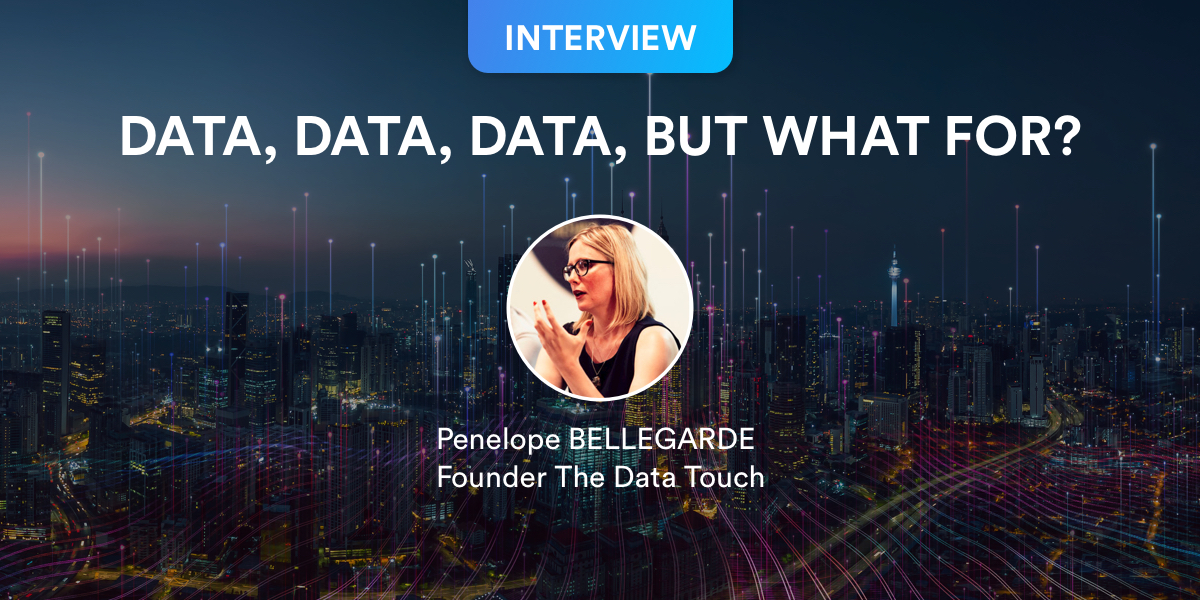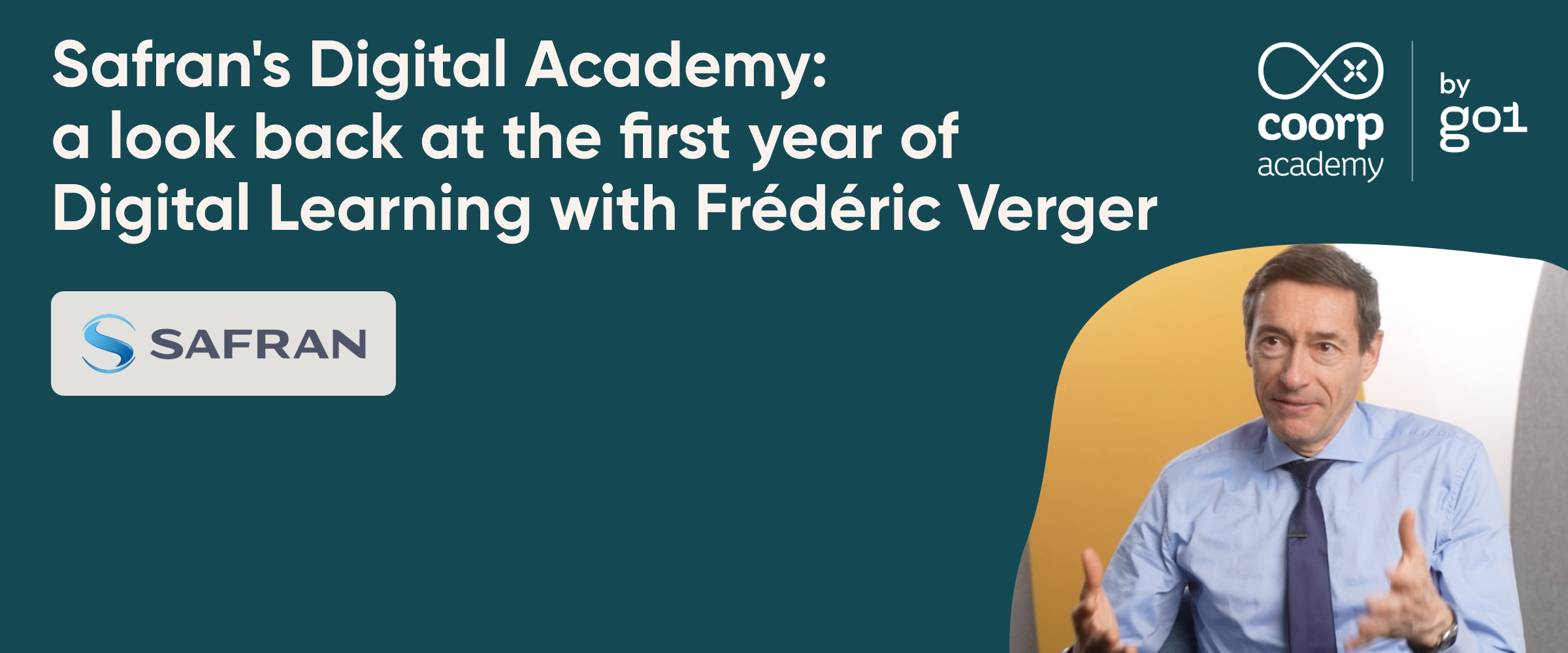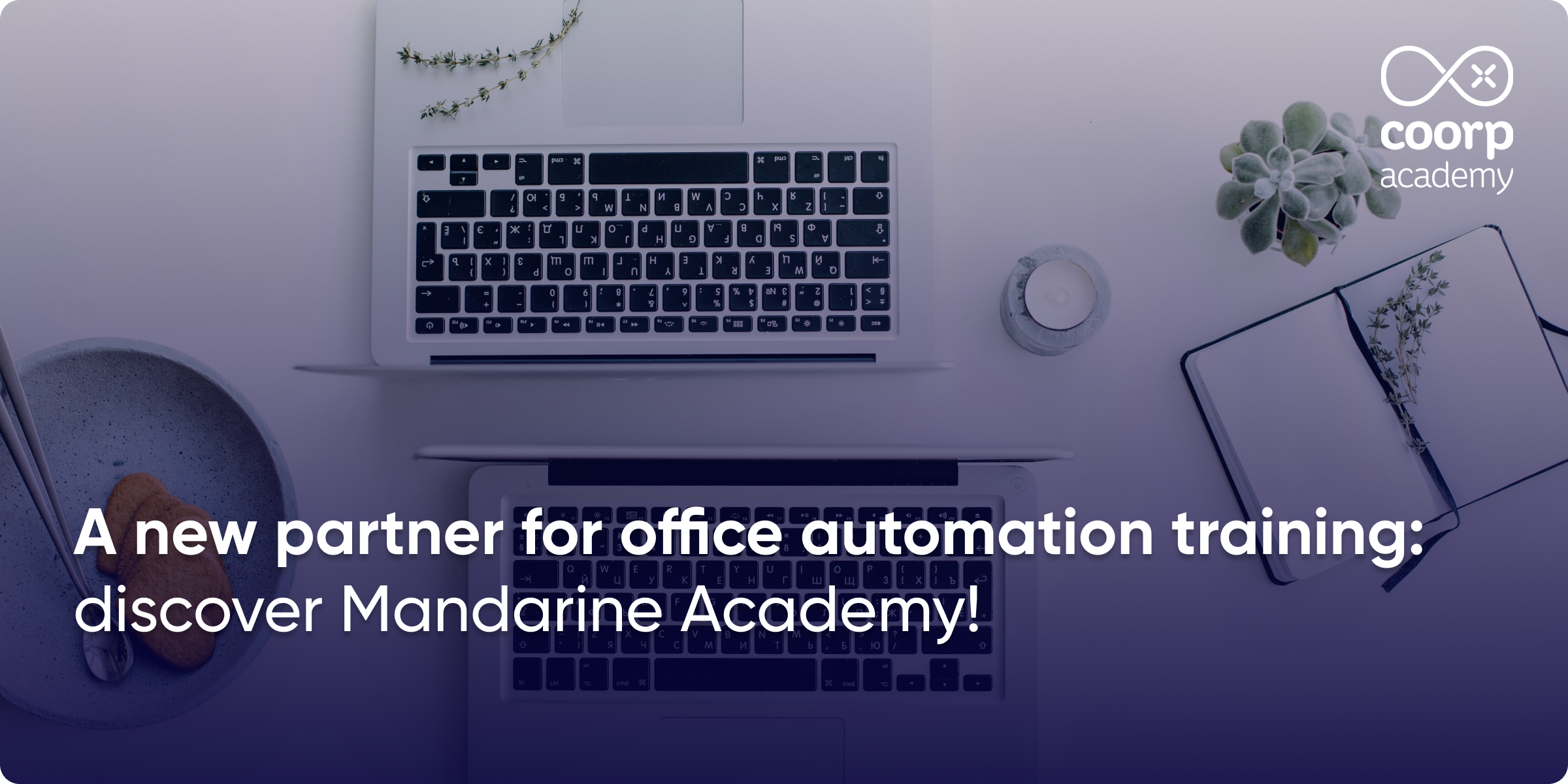Data, Data, Data, but what for?
Interview

The Data Touch was born to address a number of missed digital analytics opportunities within organisations and was founded by Penelope Bellegarde, an established digital analytics practitioner since 2007 based in London and English & French bilingual.
Over the years, Penelope Bellegarde has worked with a wide range of organisations: in the private and public sector, big and small, as a consultant for one of the top professional firms in the world and also as a digital analytics manager for top media and travel firms.
The Data Touch launched a content partnership with Coorpacademy to co-edit digital learning courses. There are two available courses on Coorpacademy’s digital learning platforms: An impactful yet simple data methodology for businesses, and The art and science of Data visualisation.
We had the opportunity to sit down with The Data Touch’s founder, Penelope Bellegarde, who answered our questions. This interview is also available in French, just here.
Why did you found The Data Touch?
I founded The Data Touch three and a half years ago in London to address three main challenges. The first challenge is to successfully create tangible value from digital data. Indeed, a lot (too much!) data is collected in this field and it still too often translates into endless reports as opposed to real value for companies.
The second challenge is to break down the barriers that exist between data departments and senior management in companies. These two groups of employees rarely speak to each other indeed and getting both groups of people engaged in a dialogue is a huge source of value for companies. In fact, when managers know the art of the possible with data, they will want to become more data driven! And when analysts better understand the company’s objectives, their analyses will be all the more impactful and will really start influencing!
Finally, the third challenge that I wanted to solve was to “arm” employees and individuals who do not have a technical profile with a data culture and efficient and simple methodologies to set up. In the digital world, new personalised campaigns are launched more and more frequently. It’s therefore becoming very important for companies to understand these initiatives’ return on investment. This results in an increasing demand for quantified results. Therefore more and more people who are not analysts must increase their skills in the data field. That’s why I have designed and have been delivering data training programs for both companies and for Business Schools students, i.e tomorrow’s leaders.
What are the reasons that lead you to consider data as the most important resource of the 21st century?
One of the main advantages of data is that it can provide objective answers and therefore allows consensus within companies. But the questions we ask must be source of value!
Data also makes it possible to grasp new trends and new phenomena that we would not have suspected with our brains alone … For example, machine learning techniques and in particular unsupervised learning such as clustering allows the identification of distinct groups (of customers, etc.) that we would not necessarily have suspected existed.
Data also makes it possible to anticipate and predict behavior and therefore brings a real competitive advantage to a company.
What are the criteria that make a data project successful as opposed to a “waste” of time and investment?
As we make it clear in the course, there are essential elements to keep in mind if you want to succeed in your data projects. First, let’s start by asking a good question: by the time we have an answer to the question, will it drive the company forward and will the company be able to act on the recommendations? Do not hesitate to involve several stakeholders at this stage to get to a rich and precise question. Then, depending on the questions identified, we need to look at what key data in particular we will focus on. Among all the available data, what is a real indicator versus just “noise”? … Once the analysis is completed, it must be communicated effectively to the stakeholders who will make decisions. This is quite fine work because you have to succeed in translating sometimes complex elements into a simple language and above all into findings that are directly addressing the company’s objectives or its strategy or findings that can shape its products or influence its customers…
Until recently, everyone was talking about Big Data, however, now, it seems as if the excitement around Big Data has reduced significantly…
Yes, that’s true! It is now replaced by AI: Artificial Intelligence!
These buzzwords are often a response to a rapid “technological push” that claims to revolutionise everything. But let’s be careful here, just because the technology is advanced, it does not mean that this revolution will create value automatically by simply investing in technology. It is still necessary, as we discussed in the previous question, to focus on what is important.
Why Coorpacademy? How was the process of creating courses with Coorpacademy?
As one of the key reasons to launch The Data Touch was to empower as many people as possible with data knowledge, being able to deliver training online in an engaging way was very appealing to me. So, when I was contacted by Coorpacademy for a first online training project, I immediately said yes!
A very close collaboration followed. First, we worked together on selecting key themes and the content around these themes … Then, it was a question of writing the scripts, the quizzes and finally to produce the videos. For my part, I found this collaboration very effective and enjoyable.
Why do you think lifelong learning is crucial for the years to come and to deal with the uncertainties of the future?
I think there are many factors that can explain this phenomenon.
First of all, technological advances lead to new jobs such as data scientists for example. Although the concepts behind this type of career are not new, it’s only now that data scientists are able to make the most of the data that is available by taking advantage of the growing advances in computers’ processing powers.
Another factor related to technology is the spread of data in all departments of the company, including in departments that traditionally had never used data day-to-day. But nowadays, business leaders expect a minimum of data understanding from their stakeholders.
From a sociological point of view, I also think that we are extremely lucky to live in an era where listening to one’s professional desires has become more of the norm. Even just a few years ago, that was the exception. Now people are much less reluctant to retrain and experiment!
Finally, we have become increasingly aware of the limits posed by traditional education systems. For example, those systems have always favored technical skills over skills that are more related to emotional intelligence. And demonstrating emotional intelligence is a priceless asset in the business world. People are becoming more and more aware of it and therefore decide to train themselves in these techniques.
The need for lifelong learnings is therefore one of the major disruptions that has affected the labor market over the past several years. From now on, each individual is very likely to work in several different jobs and this is a great opportunity! But this obviously requires regular investments in new training and also means that we need to be able to pause and reflect on our career choices on a regular basis…
Being able to train continuously is crucial because it forces us to adapt, to reinvent ourselves and therefore to remain competitive!
From a legal point of view, data collection and the way some companies have chosen to use data has been marred by scandals, in particular with regards to data privacy… Do you think that this global awareness is an opportunity or a threat to the use of data?
For my part, from an ethical point of view, I think that more transparency was necessary. Consumers have the right to better understand what data is collected about them and for what purposes. However, data collection in many cases is a source of value for consumers. The more a company knows about your habits, the more it will be able to offer consumers more personalised products or services and save them time.
Now from an analytical point of view, I actually remain optimistic about the impact those recent data privacy laws will have on data collection. Indeed, I think that bringing more governance around data is a good thing. Today, we have access to too much data and yet, we don’t do much with it. The more limited the data, the smarter and the more creative the analytics field will become. For example, if some data is no longer available, we’ll be forced to think about what other similar data we can replace it with…
What makes you passionate about data?
Many things! But I must say that the range of skills required to succeed with data is so diverse that this field continues to fascinate and to stimulate me!
When we look at data from an outsider’s perspective, we always tend to only see the mathematical, statistical aspect of data. But data is also an art! Indeed, as we explain in the course it is absolutely critical to be able to translate quantified discoveries into a simple, tangible language that focuses on the value that these discoveries can bring to the company… Not easy !
We have to learn how to keep an open mind. We often have a tendency to want to use data to confirm a hypothesis that is close to our heart rather than letting the data speak for itself.
Finally, it is obviously useful to know a lot of useful tools for data manipulation. And, it’s actually very important to keep up with those new tools by investing in ongoing training. Some very powerful tools for data manipulation are indeed relatively young. For example, Pandas, a fundamental library to manipulate data in Python was created in 2008. Google Data Studio, Google’s data visualisation tool was launched in 2016…


